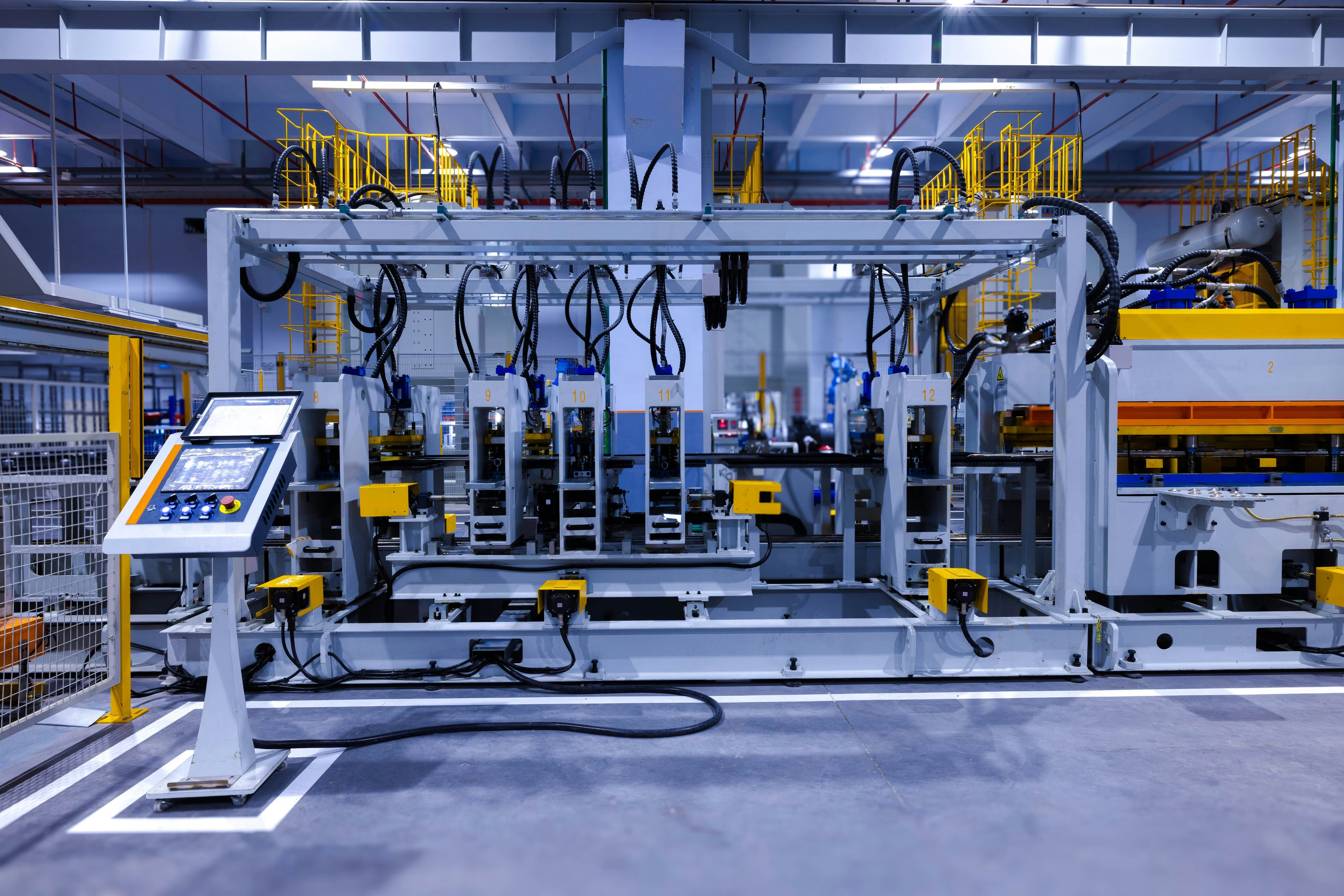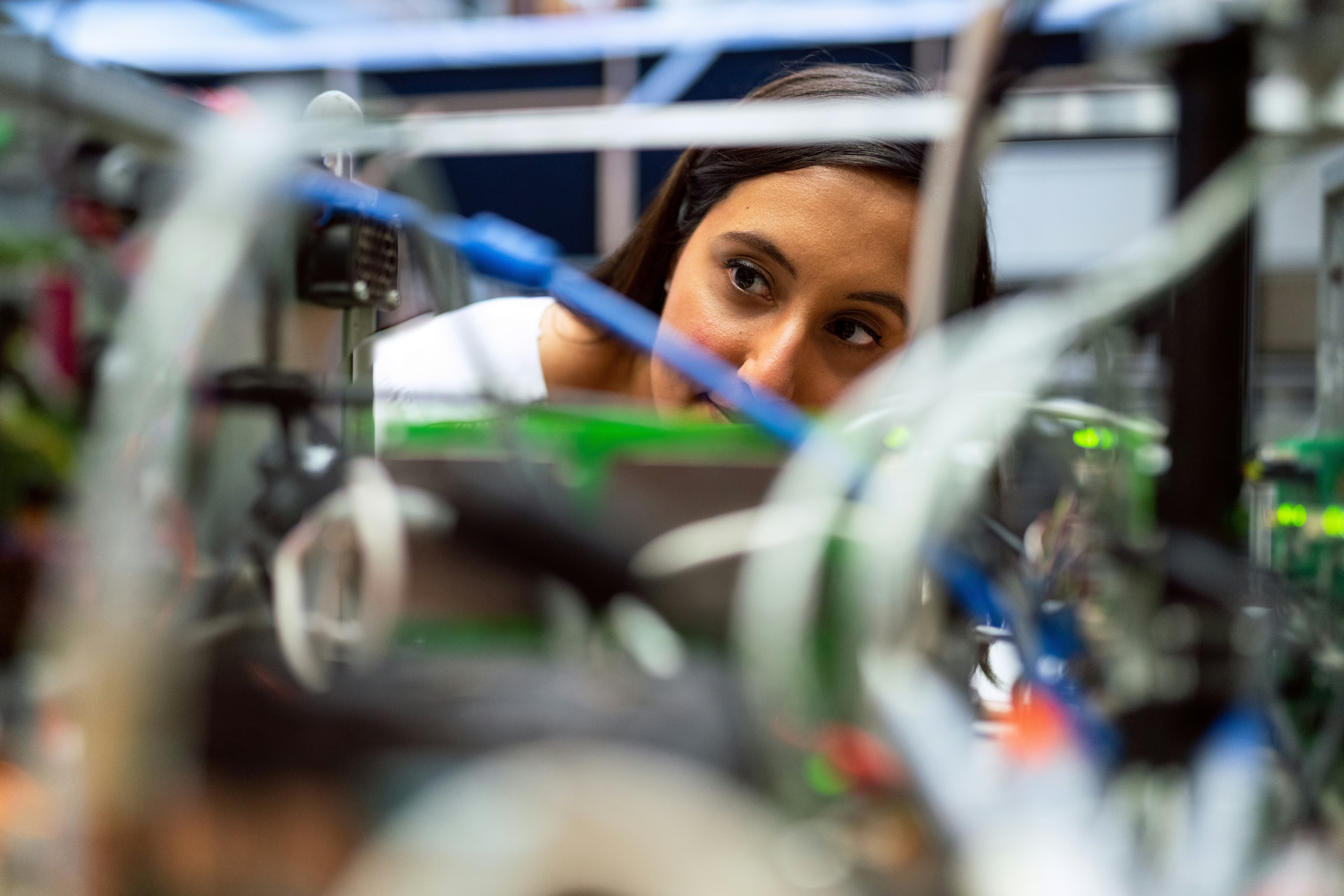While artificial intelligence is already embedded in daily life, its true transformative potential remains underutilized.
Equitable access to AI is essential to prevent a widening digital divide.
The World Economic Forum and VivaTech launched the European Centre for AI Excellence (CAIE) to develop responsible AI solutions.
세계경제포럼, 2025년 3월 3일 게시
Cathy Li
Head, AI, Data and Metaverse; Member of the Executive Committee, World Economic Forum
Andrew Caruana Galizia
Head of Europe and Eurasia, World Economic Forum

In a lab in Singapore, an artificial intelligence (AI) algorithm accelerates cancer detection, helping doctors pinpoint malignant cells with unprecedented speed and accuracy. On a farm in Kenya, AI-powered sensors analyse soil conditions in real time, guiding farmers towards precision irrigation that boosts crop yields while conserving water. Meanwhile, in the Arctic, machine learning models process satellite imagery to track ice sheet changes, giving scientists an early warning system for rising sea levels.
These breakthroughs highlight a truth often overlooked: AI’s transformative power extends far beyond chatbots and virtual assistants – it holds the key to solving some of the world’s most pressing challenges. Yet, our collective focus remains narrow, fixated on generative AI’s immediate conveniences rather than its deeper potential to reshape entire industries and societies.
At the AI Action Summit in Paris, we saw world leaders jostling for AI supremacy, with talk of investments that keep piling up.
Lost in the “media hype” is analysis of the concrete action on how to use AI where it matters most – in solving global challenges such as climate change and healthcare, which exceed human capacity alone. While the technology exists to address many – perhaps all – of these challenges, its potential is not being explored.
In essence, current efforts are focused on relatively small-scale solutions rather than moon shots. This is why we need to learn to embrace, democratize and use AI.
Short-sighted thinking around AI
As humans, we have a natural tendency to overestimate the effects of technology in the short term, while being blind to their much more profound long-term impact. As a result, our focus is currently narrow and we are ignoring the potential of AI to transform the models and systems on which modern-day life runs.
Currently, just 16% of companies consider themselves prepared for AI-driven reinvention, while 74% face critical barriers to scaling AI solutions. This is a problem when reinvention through systems transformation is the way forward.
What does system transformation look like? In healthcare, it means automating administrative tasks to free up clinicians’ time, improving diagnoses through AI-enhanced decision-making, accelerating drug development and personalizing treatment for individuals.
It does not mean replacing key workers but supporting them, allowing them to focus on the most meaningful aspects of their roles.
Have you read?
- Balancing innovation and governance in the age of AI
- Shaping the future of artificial intelligence: Reflections from the AI Governance Alliance
- AI: Will governance catch up with the tech in 2024?
To achieve this requires powerful forces – enablers – such as the need to demonstrate returns to ensure long-term investment, the realignment of policy as well as public-private priorities, prioritizing shared infrastructure and data pools, and equipping leaders with the skills so they can make informed decisions about technology, cybersecurity and building trust to detect AI-related risks.
Systems change is complex and interconnected with the broader economy, often facing resistance from those favouring the status quo. Key challenges include misalignment between technical experts and policymakers and fragmented regulation.
While disruptive at first, systems change ultimately leads to more efficient and effective structures, despite the challenges of implementation in already overburdened frameworks.
It’s a sound theory but how do we get there?
AI: Moving beyond cost and efficiency gains
First, AI’s potential – its real potential – must be embraced. This can be achieved through multistakeholder actions, putting the best outcomes for society as the priority and collectively figuring out what needs to change. To truly raise ambition and be able to dream of what couldn’t be done before, collaboration is essential across public-private, industry, regional and individual. This will address hurdles such as finding means to facilitate change, the cost of training AI or sharing data in a safe and secure way.
Second, AI must be democratized. Such a powerful technology cannot be the remit of countries and regions that already have ready access to AI resources. Failing to democratize AI risks widening the digital divide, making it impossible to govern such a ubiquitous technology. If proper governance, the risks of misuse will be far greater. Cognizant of this, the World Economic Forum created the AI Governance Alliance in 2023 to promote a holistic approach towards creating more equitable, responsible AI societies.
Third, confidence in using AI. In part, this will come out of realizing its potential and making it both relevant to people’s lives and part of a “natural” way of working and living. Early mobile phones were highly priced, large, clunky devices with little fit for purpose, but with better design, improved technology and production at scale, they have become a largely indispensable part of life.
In this respect, AI model and application developers need to develop and deploy technologies in a responsible and sustainable way. This will help gain public trust, something that is currently not a given.
Europe’s AI growth

The World Economic Forum, together with VivaTech, has now announced the launch of the European Centre for AI Excellence (CAIE) in Paris.
The centre will join the Forum’s Global Network of Centres for the Fourth Industrial Revolution, leveraging the position of France as a leading global AI hub, informing and supporting cross-border research, nurturing start-up ecosystems and championing responsible AI adoption across empowered enterprises and society.
It will focus on solving key AI challenges with solutions designed for Europe’s needs and with the support of the AI Governance Alliance, it will become one of the largest and most diverse networks of AI stakeholders globally.
We’re at the stage where we are deciding the blueprint for intelligent economies and we will create the foundations for these by integrating AI with other emerging technologies, such as biotechnology, quantum computing, robotics, spatial intelligence and more.
Ultimately, technology can’t help solve human problems if humans don’t let it. If we do, then true transformation is possible.
The new CAIE intends to promote collaboration to develop responsible AI solutions, boosting innovation, productivity and economic growth on the continent. It will offer a blueprint that is less about “supremacy” and more focused on fast-tracking the potential for global and equitable gains.


